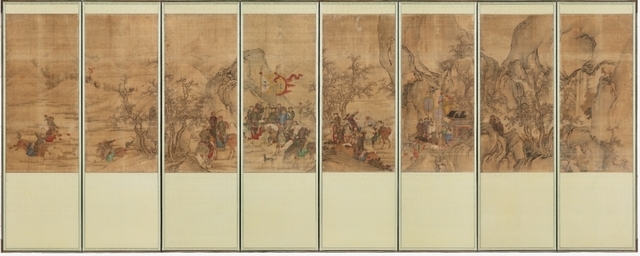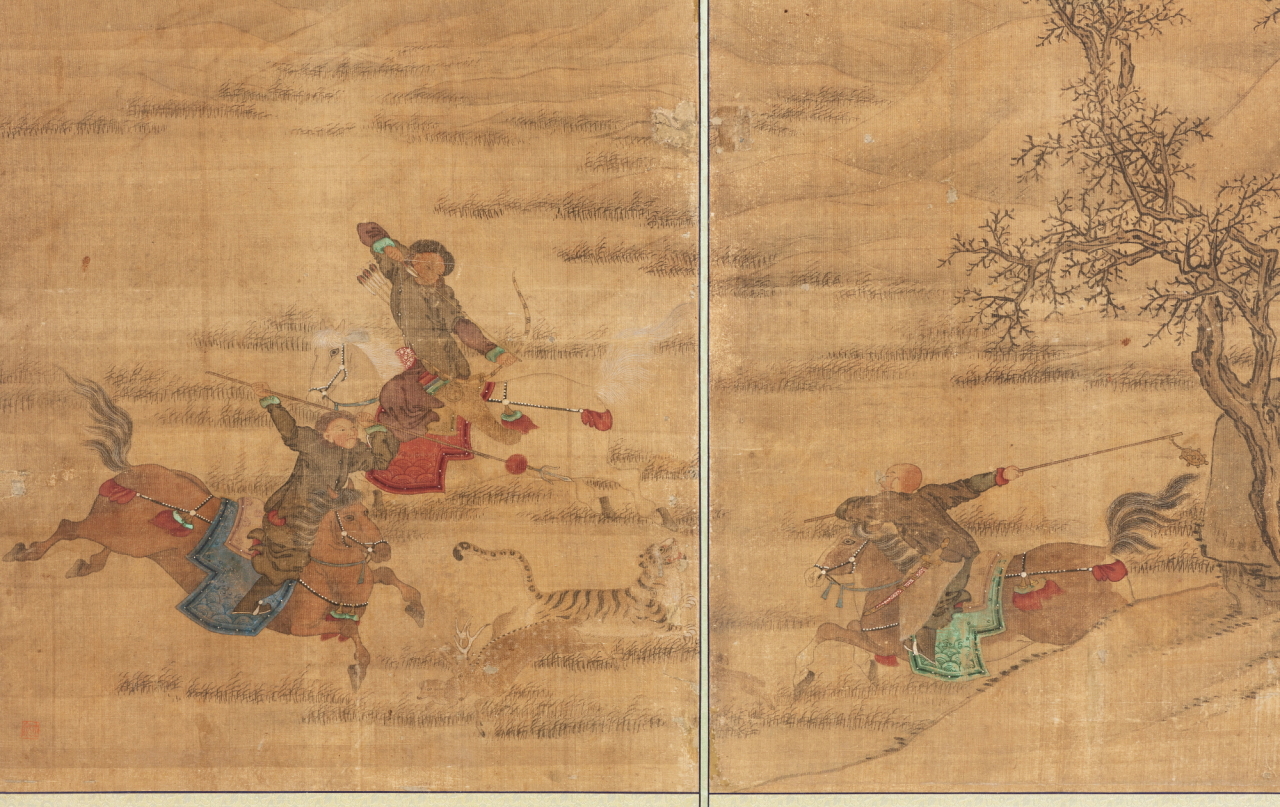Joseon-era folding screen with hunting scenes goes on display
By Song Seung-hyunPublished : Feb. 20, 2021 - 16:01

An eight-panel folding screen from the Joseon era depicting hunting scenes have been put on display from Thursday at the National Palace Museum of Korea, according to the Cultural Heritage Administration and the Overseas Korean Cultural Heritage Foundation.
The folding screen was purchased at an auction in the US last September, according to the CHA.
The paintings on the folding screen mainly feature a Qing Dynasty emperor enjoying hunting.
The item is from the late 18th century when production of such paintings began as the people’s interest in Qing China grew at the time, the CHA said.

The paintings portray excellent expression of landscape, well-organized composition, and vivid depiction of human figures and animals.
The first and second panels feature landscapes with an autumnal scenery and a waterfall. The third panel depicts women from the Chinese imperial family in a splendid palanquin. The fifth panel features a Qing emperor in a blue robe with a white dragon design. The seventh and eighth panels show a hunter aiming his bow at a tiger and a deer, while other hunters wield spears and an iron weapon at animals.
According to the CHA, hunting-themed pictures were first painted in Korea by Kim Hong-do (1745–1806), one of the most renowned painters of the Joseon era. However, none of his hunting paintings have survived and are only documented in “Essays on Rural Life and Economy,” a book on farming policies of the late Joseon era.
By Song Seung-hyun (ssh@heraldcorp.com)




![[Herald Interview] 'Amid aging population, Korea to invite more young professionals from overseas'](http://res.heraldm.com/phpwas/restmb_idxmake.php?idx=644&simg=/content/image/2024/04/24/20240424050844_0.jpg&u=20240424200058)













![[KH Explains] Korean shipbuilding stocks rally: Real growth or bubble?](http://res.heraldm.com/phpwas/restmb_idxmake.php?idx=652&simg=/content/image/2024/04/25/20240425050656_0.jpg&u=)

